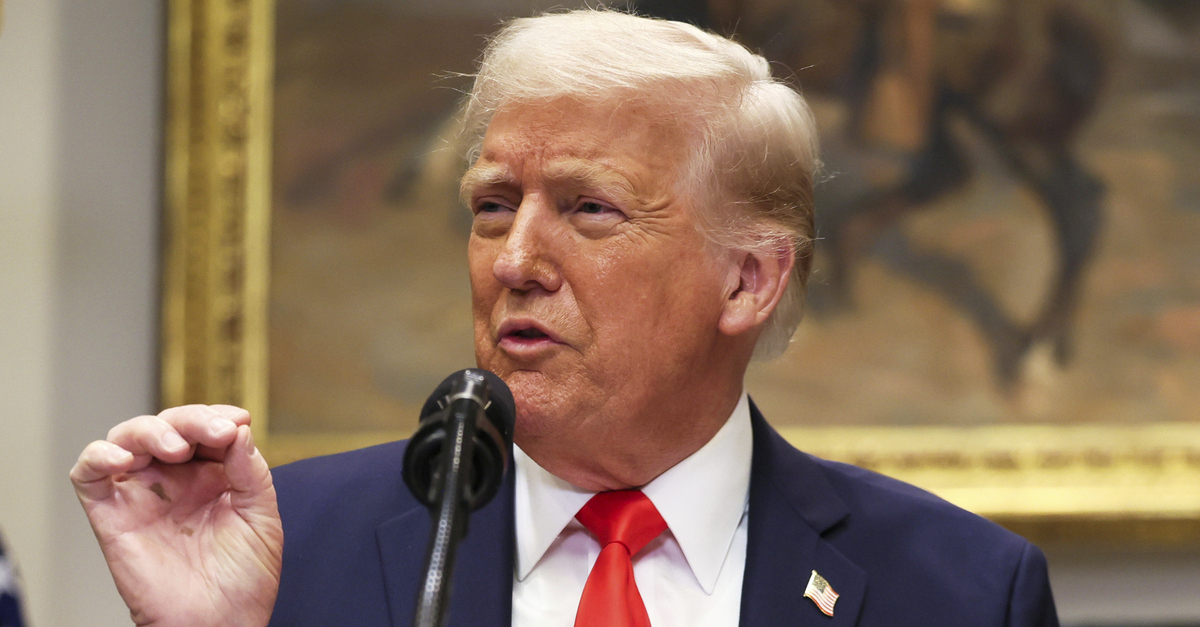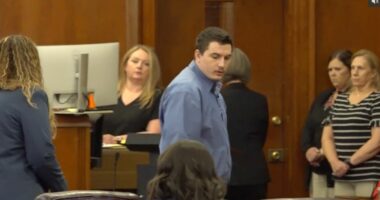
President Donald Trump speaks in the Roosevelt Room of the White House in Washington, Monday, March 3, 2025 (Pool via AP).
The Trump administration’s Department of Justice had a difficult time defending the president’s use of an obscure wartime power to deport Venezuelan migrants to a notorious prison in El Salvador without due process during an appellate court hearing where one judge said that Nazis received better treatment under the same act when it was last invoked.
Appearing before the U.S. Circuit Court of Appeals for the District of Columbia, Deputy Assistant Attorney General Drew Ensign’s opening remarks were immediately met with skepticism from U.S. Circuit Judge Patricia Millett, who seemed particularly underwhelmed by the DOJ’s claims that a March 15 district court order halting deportations under the act was an “unlawful intrusion” on the president’s wartime powers.
Millett was particularly concerned with the fact that more than 100 alleged Venezuelan gang members had no way to stop the government from flying them to El Salvador, as the flights departed just hours after President Donald Trump issued a proclamation and became the first president since World War II to invoke the Alien Enemies Act of 1798 (AEA).
‘There were planeloads of people. There were no procedures in place to notify people,” she said during the hearing. “Nazis got better treatment under the Alien Enemies Act than has happened here, where the [Nazi] proclamation required the promulgation of regulations and they had hearing boards before people were removed. And yet here, there’s nothing in there about hearing boards, there’s no regulations, and nothing was adopted by the agency officials that were administering this. The people weren’t given notice, they weren’t told where they were going. Those people on those planes on that Saturday had no opportunity to challenge their removal.”
The statute — which has only been invoked three times previously, all during wars — authorizes the president to summarily remove “natives, citizens, denizens, or subjects” of a “hostile nation or government” when there is “declared war” against it or when it has “perpetrated, attempted, or threatened against the territory of the United States” an “invasion or predatory incursion.” In a controversial and novel use of the power, Trump declared the Venezuelan gang Tren de Aragua (TdA) had committed or attempted an “invasion” or “predatory incursion” such that any member of the group was summarily removable under the Act.







